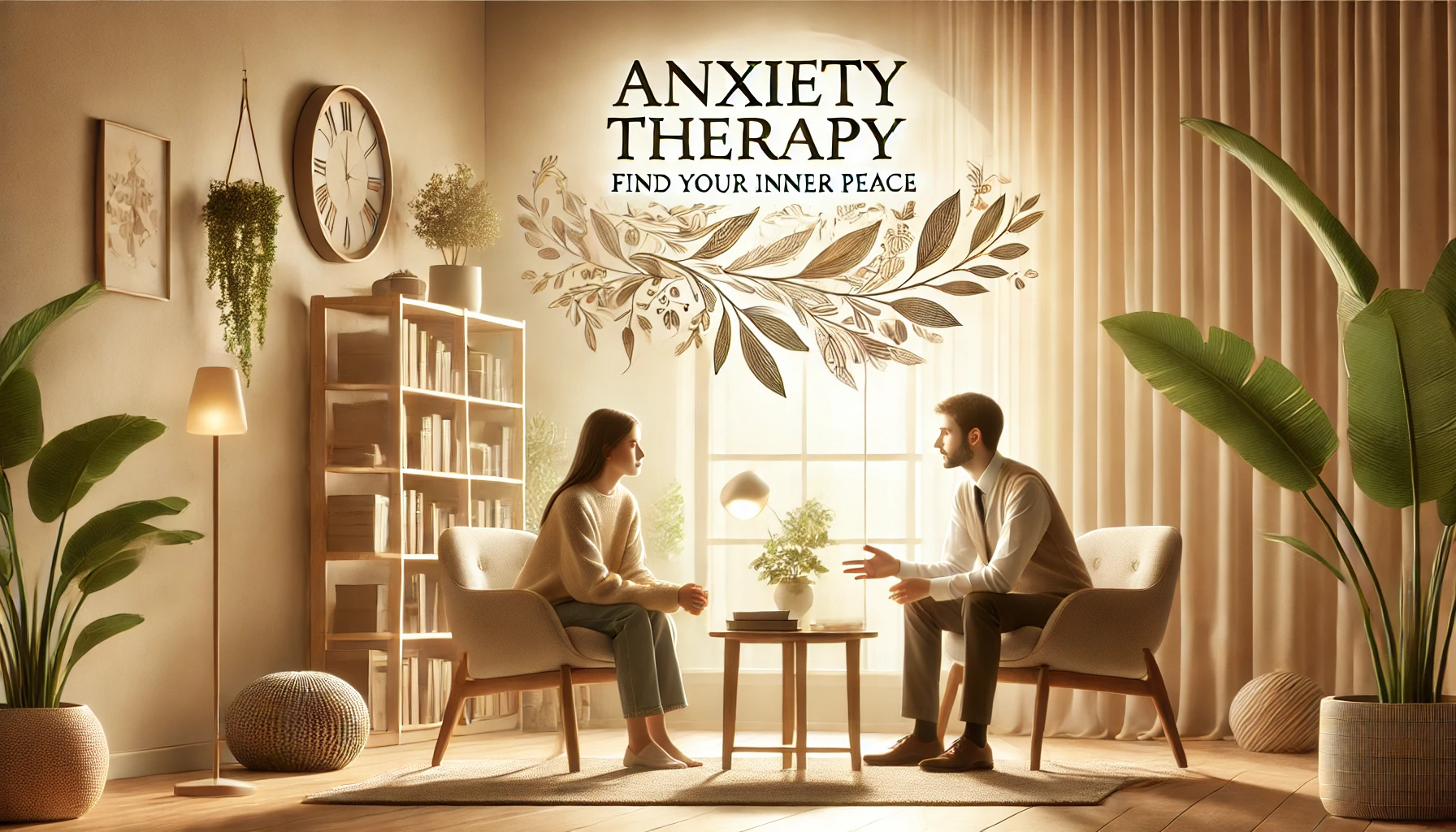
Anxiety is a common yet often misunderstood mental health condition. While many people experience occasional stress or worry, chronic anxiety can disrupt daily life, affecting work, relationships, and overall well-being. Unfortunately, many individuals hesitate to seek help, believing they should handle it on their own.
What if we told you that anxiety therapy offers surprising benefits beyond just symptom relief? Seeking professional counseling can help you build resilience, improve relationships, and even enhance overall mental clarity.
At PS-ITS Counseling, we specialize in anxiety therapy, offering evidence-based approaches to help you regain control of your thoughts and emotions. In this article, we explore the unexpected advantages of therapy for anxiety and why seeking professional support could be one of the best decisions you ever make.

Anxiety is more than just feeling nervous before a big event—it’s a persistent state of worry that can affect how you think, feel, and act. Common symptoms include:
If left untreated, anxiety can lead to burnout, depression, and even physical health problems. That’s why seeking anxiety therapy early can have a profound impact on both your mental and physical health.
For a deeper dive into anxiety and how it affects daily life, check out our article Anxiety Therapy in Joliet.
One of the biggest challenges of anxiety is the overwhelming flood of emotions that can feel impossible to control. Through therapy, you can learn techniques to manage your emotional responses more effectively.
Therapists at PS-ITS Counseling use Cognitive Behavioral Therapy (CBT) and mindfulness techniques to help you identify emotional triggers and develop healthier ways to respond.
If you’d like to learn more about mindfulness for anxiety, read Anxiety Alchemy: Transforming Worry Into Inner Peace.
Did you know that anxiety can take a serious toll on your physical well-being? Chronic stress and anxiety have been linked to:
When you engage in anxiety therapy, you reduce the body’s stress response, which can lead to improvements in physical health. Many clients report fewer headaches, better digestion, and lower blood pressure after beginning therapy.
Anxiety can strain relationships by making it difficult to communicate effectively, manage emotions, or maintain trust. Through therapy, you will:
For those in romantic relationships, couples therapy can also be a powerful tool for overcoming anxiety-related conflicts. If you and your partner are struggling, check out our guide on Couple Counseling in Joliet.
Anxiety therapy helps individuals become more self-aware, allowing them to recognize the thought patterns that contribute to their distress. When you understand how your mind works, you can:
This increased self-awareness can also help individuals struggling with self-esteem and confidence issues, offering a new sense of empowerment and control.
Anxiety often makes it difficult to focus, complete tasks, or perform well under pressure. Whether you’re a student, professional, or entrepreneur, therapy can help you:
If you struggle with focus-related anxiety, you may also benefit from ADHD Therapy in Joliet, which addresses similar challenges.
Panic attacks can be terrifying, often leaving individuals feeling helpless. Anxiety therapy equips you with tools to:
For those experiencing severe anxiety episodes, trauma-informed therapy can also provide additional support. Learn more about it in our article Trauma-Informed Therapy.
If left untreated, anxiety can escalate into depression, substance abuse, or chronic stress disorders. Early intervention through therapy can:
For those who may already be struggling with both anxiety and addiction, we also offer Addiction Therapy to help individuals find recovery and mental balance.
At PS-ITS Counseling, our anxiety therapy sessions are designed to be collaborative, evidence-based, and solution-focused. Here’s what you can expect when you begin therapy with us:
Your therapist will discuss your symptoms, triggers, and goals for therapy to create a personalized treatment plan.
We use Cognitive Behavioral Therapy (CBT), mindfulness, and exposure therapy to help manage anxiety effectively.
Therapy sessions will focus on practical coping skills, emotional processing, and long-term anxiety management.
We continuously assess your progress and make adjustments to your treatment plan as needed.
If in-person therapy isn’t an option for you, we also offer Virtual Therapy for Mental Health, providing professional care from the comfort of your home.
At PS-ITS Counseling, we are committed to providing compassionate, professional, and effective mental health care. Here’s why our clients trust us:
If anxiety is interfering with your daily life, work, or relationships, therapy can help you develop effective coping mechanisms.
The duration varies depending on the individual, but many clients see improvement within 8–12 sessions.
Yes! We offer Virtual Therapy to ensure accessibility for all clients.
We use CBT, mindfulness-based therapy, exposure therapy, and relaxation techniques to help manage anxiety.
Simply Contact Us to schedule an initial consultation and begin your journey toward relief.
Seeking anxiety therapy is not a sign of weakness—it’s an investment in your mental, emotional, and physical well-being. At PS-ITS Counseling, we are here to help you break free from anxiety and reclaim your life. Reach out today to begin your journey toward peace and confidence.
Embark on a transformative path to optimal well-being with our uplifting counseling services. Let our expert guidance elevate you to new heights of wellness. Take the first step today and enjoy a complimentary 15-minute consultation to explore the positive changes awaiting you.
At PS IT’s Counseling, we believe in the power of personal and professional growth. Our team is dedicated to providing high-quality counseling services that empower individuals to overcome challenges and achieve their goals.
